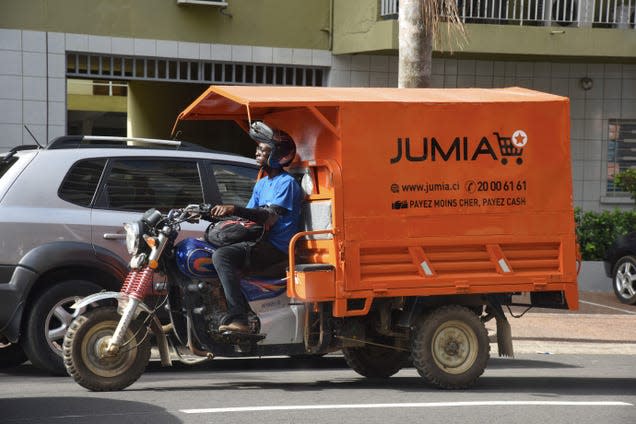Jumia is using Zipline’s automated drones for deliveries in Ghana

California-based Zipline is known for pioneering the delivery of blood and essential health products in Africa using automated drones in Rwanda, Ghana, and Nigeria just this year. Recently, the company began extending its assets to the distribution of items used in agriculture, such as semen for farm animals.
In what could one day reshape the future of logistics on the continent, Africa’s largest e-commerce company Jumia has started using Zipline’s drones for home deliveries, adding an aerial dimension to the online retailer’s increasingly efficient logistics system.
Jumia and Zipline
The move stems from Jumia’s push to be the go-to platform for Africans ordering everyday items. “Whether they’re ordering electronics, fashion, health, and beauty, or other categories, Zipline’s instant logistics system will provide fast and convenient access,” Apoorva Kumar, Jumia’s chief operating officer, said in a statement.
By going into business with Jumia, Zipline emphasizes its self-definition as primarily a logistics company, not a healthtech, positioning it as a potential keystone partner for online retailers looking to access parts of Africa with challenging roads.
A pilot was done in Ghana
Both companies started a pilot of the drone delivery at the end of May, a Jumia representative told Quartz. Zipline has been operating in Ghana since 2019 and has a regulatory clearance.
Jumia said it was able to complete deliveries within an hour while testing the drones within 85km distances from Zipline’s operational hub in Omenako, a village in eastern Ghana. The service will take off in Ghana, with Cote d’Ivoire and Nigeria being the next stops.
In the second quarter of this year, Jumia delivered 60% of physical goods within a day, up from 57% in the first quarter. The growth has been made possible by the company’s increasing fleet of delivery vehicles and warehouses. Last month, it launched 20-minute deliveries in Lagos, Nigeria to deliver groceries and food.
It is not clear how long it will take for the drone service to move from Ghana to the company’s 10 other markets. While the company says drones will deliver electronics, fashion, health, and beauty products, it is more feasible that some products will be better suited to drone delivery than others.
But this is where Zipline is expected to apply the expertise gained from delivering blood products, arguably the most delicate items, to widen Jumia’s ambitions. Daniel Marfo, senior vice president Zipline, is optimistic that his company’s system “will make shopping on Jumia even more convenient, sustainable and accessible for its customers.”

